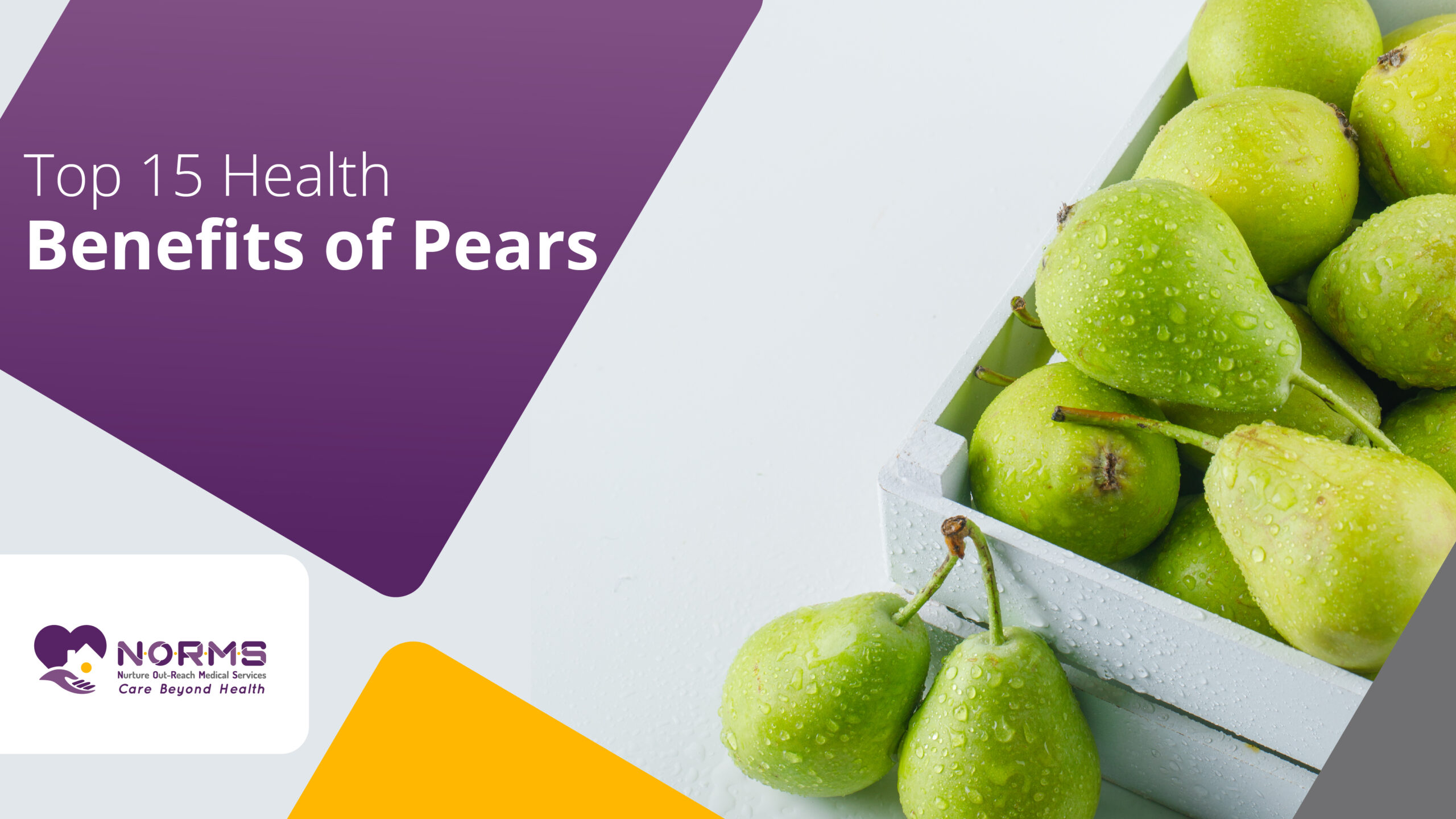
Pears are among those fruits that we all like and eat the rest, which has been true for years to come. These delicious fruits belong to the Rosaceae family alongside apples and quinces; filled with vitamins and fibers that are so necessary for one’s development, these certainly deserve the top spot in a healthy list. Pears are the perfect fruits for our overall well-being and they offer numerous benefits.
Table of contents
Before we plunge into the positive sides of pears, it is important to determine why learning about their positive characteristics matters. The inclusion of foods that are rich in nutrient content is a necessary factor for maintaining optimal health. Pears, labelled the vital powerhouses of essential nutrients in terms of their composition contain various vitamins such as vitamins C and K that have diverse functions. Pears have many benefits, from digestive support to heart health. However, when individuals learn about these advantages they can make healthy dietary decisions that help create a healthier balanced way of life.
Pears are considered nutritionally dense fruit due to the variety of vitamins and minerals that it delivers. They are especially rich in vitamin C, potassium, and dietary fiber. The immune system is supported by Vitamin C while potassium helps to regulate blood pressure and dietary fiber promotes digestion as well as weight loss.
The high fiber content of pears is good for digestion because it prevents constipation and helps keep bowel movements at a safe rate. Soluble fiber from the pears can also serve as a prebiotic and feed on beneficial microbes in the gut, ensuring the proper functional quality of intestinal biota.
Pears are considered heart-friendly fruits because of their potassium contents, which acts to control blood pressure. Furthermore, pear fiber decreases cholesterol levels and therefore reduces the risk of contracting cardiovascular diseases such as myocardial infarction or strokes.
Pears contain antioxidants such as flavonoids, carotenoids, and ascorbic acid. These compounds also perform neutralization of free radicals in the body, thus reducing cell damage due to oxidative stress and risk development for certain cancers.
Pears if one is looking to shed some weight are great options for snacks. The high proportion of fiber content gives a feeling of satiety and thus, the total amount of calories ingested. Furthermore, the natural sugars in pear give a sweet pleasure without excess calories as found in numerous commercial snacks.
Pears have anti-inflammatory effects, which are contributed to by their antioxidants that combat chronic inflammation. Long-term inflammation has been associated with conditions like arthritis and heart disease. Regular intake of pears may help reduce inflammation, thereby enhancing joint health and contributing to overall cardiovascular benefits.
Although pears are naturally sweet, they have a low glycemic index making them less likely to cause fluctuations in blood sugar levels. The fiber in pears reduces the rate of absorption of sugars, hence making it an appropriate option for diabetic patients or those who want to normalize their blood sugar levels.
The antioxidant fiber and the phytochemical components present in pears have been linked to the occurrence of some cancers like colon, breast, and lung cancer. These chemicals protect cells from damage and slow the growth of cancerous ones.
Pears contain antioxidants that may contribute to improved cognitive function and reduced cognitive decline associated with aging. Studies suggest that regular consumption of fruits rich in antioxidants, such as pears, may help protect the brain from oxidative stress and maintain cognitive health.
Pears have a high water content which in turn contributes to hydration. Staying adequately hydrated is essential for overall health, supporting bodily functions such as temperature regulation, nutrient transport, and waste elimination.
Pears contain essential nutrients like vitamin K and boron, which play a role in maintaining bone health. Vitamin K is crucial for proper calcium utilization in bones, while boron helps prevent bone loss and supports overall bone density.
The antioxidants in pears, including vitamin C and copper, contribute to skin health by promoting collagen production and protecting against oxidative damage. Collagen is important for maintaining skin elasticity and preventing premature aging.
Pears contain certain compounds that have been linked to a reduced risk of developing allergies. Including pears in the diet, especially during infancy, may help build tolerance to potential allergens and decrease the likelihood of allergic reactions.
Quercetin, a flavonoid present in pears, has anti-inflammatory and antiviral properties that may support respiratory health. Regular consumption of pears may help alleviate symptoms of asthma and other respiratory conditions.
The fiber content in pears is both soluble and insoluble, it promotes peristalsis of the intestine for the smooth defecation process as well as eliminating toxins through detoxification. The fiber binds to the toxins and waste products in the digestive tract thus enabling their removal from one’s body.
The advantages of enjoying pears are numerous and as plentiful, itself, their diversity. When it comes to promoting heart health, digestion, and overall well-being some of the functions that pears can provide are quite outstanding. If these fruits are taken by an individual in a good quantity and required they help to improve various aspects of health thereby making them valuable for inclusion into any meal plan. As the discoveries of how nutrition is related to health continue, pear benefit falls in it as a step to better living. As such, whenever you indulge in juicy pear the next time around be sure to not only relish but also relish the numerous health benefits that honey brings along with it for your body and mind.
Although the pear varieties might have slight differences in taste and texture respectively, their nutritional content variances are negligible.
Yes, pears are a good source of weight loss. Firm innate substance in pears encourages fulfillment, lessening complete calorie admission.
Yes it does, pears have a low glycemic index, and blood glucose levels will respond minimally to their consumption.